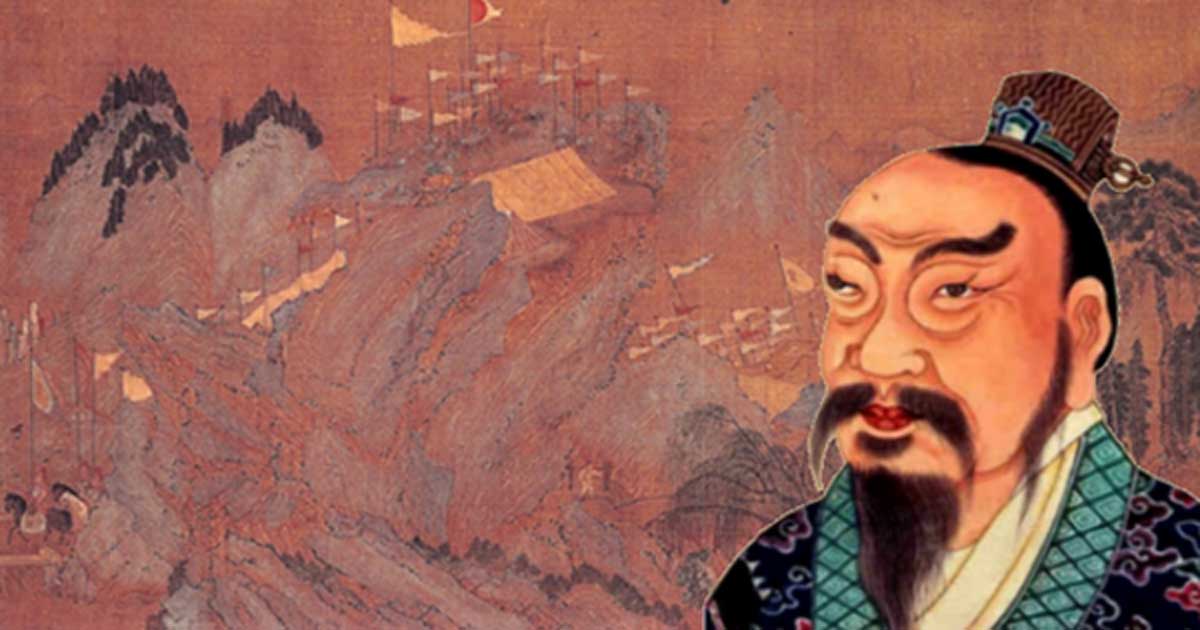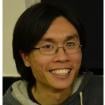The Rags to Riches Story of Liu Bang: Peasant, Rebel, Chinese Emperor
Liu Bang’s life is a rags to riches story. He was born into a peasant family but rose to become the emperor of China. In fact, Liu Bang (known also as Emperor Gaozu of Han) was the generally benevolent founder of China’s second imperial dynasty, the Han Dynasty.
As emperor, Liu Bang was greatly influenced by the philosophy of Confucius and he based his actions on these ideals. He is generally remembered to have been a just and kind ruler and often contrasted with the tyrannical and brutal reign of Qin Shi Huang, the first emperor of the preceding Qin Dynasty.

Qin Shi Huang, King of Qin. (Public Domain)
Who Was Liu Bang?
Liu Bang was born into a peasant family in Pei County (located in the modern Chinese province of Jiangsu), which was then part of the conquered state of Chu. When Liu Bang became emperor, legendary tales about his origins were created, so as to provide legitimacy to his rule. This process of myth-making was continued and proliferated by Chinese historians even after the emperor’s death.
- The Ruthless Chinese Emperor Qin Shi Huang: How He Unified and Tyrannized His Subjects
- Mythical Ancient Emperors Who Fought Over the Birth of China - Who Started It?
- When Concubines Fought Back: The Plot to Eliminate a Mad and Sadistic Emperor
One of these myths, for example, tells of how Liu Bang was conceived. In this tale, his mother was caught in a storm and sought shelter under a bridge. In a slightly different version of this myth, she was having a dream. In any case, the sky darkened, and lightning struck. When her husband came to her (either under the bridge, or in the room), he saw a dragon beside her. Liu Bang is said to have been conceived shortly after this supernatural incident.

Chinese dragon. (CC0)
As a child, Liu Bang is reputed to have been outspoken and charismatic, traits that he would continue to display later on in life as a leader. Nevertheless, he was also a lazy child, showing no interest either in farming or in studying. When he grew up, he was appointed as a patrol officer and served under the Qin Dynasty at the provincial level.
His personality led him to become a popular figure in his hometown, and he managed to forge cordial relationships with other officials in his county. Liu Bang also impressed Lü Wen, a wealthy country gentleman, who gave to him the hand of his daughter, Lü Zhi, in marriage. This meant that Liu Bang married well above his social station.

Modern representation of Liu Bang. (Takashi Saito/CC BY NC ND 2.0)
Rivalry with Xiang Yu
Qin Shi Huang died in 210 BC and his successor was not as competent as he was. This provided an opportunity for the states conquered by the Qin to rebel and to try to regain their independence. Liu Bang, although not part of the ruling elite, decided to relinquish his position in the Qin administration, and to throw his lot in with the rebels. He rose through their ranks, and eventually came into conflict with its nominal leader, Xiang Yu.
The conflict between the two men began when King Huai II of Chu promised to grant the title of ‘King of Guangzhong’ to whoever was first to enter Guangzhong, the heartland of the Qin Dynasty. Liu Bang beat Xiang Yu in the race and arrived at Xianyang, the Qin capital, where the last Qin emperor, Ziying, offered his surrender.

‘Entry of the First Emperor of the Han Dynasty into Guanzhong’ (early 12th century) by Zhao Boju. (Public Domain)
The conflict between Xiang Yu is known as the Chu-Han Contention. One of the most famous incidents that occurred during this conflict is the Feast at Hong Gate in 206 BC, during which Xiang Yu attempted to assassinate Liu Bang.

A Western Han female dancer in silk robes, 2nd century BC, Metropolitan Museum of Art; Xiang Zhuang intended to assassinate Liu Bang by pretending to do a sword dance. (Sailko/CC BY SA 3.0)
The latter barely escaped with his life, and at the Battle of Gaixia four years later, he scored a decisive victory over his rival. Following Xiang Yu’s suicide after this battle, and the surrender of Chu to Han, Liu Bang was enthroned as the Emperor of China.

‘Battle of Gaixia.’ (history.bjinnovate.com)
Emperor Gaozu of Han
Liu Bang is often regarded as a kind ruler who implemented Confucian ideals in his administration. However, Liu Bang himself was originally a rough person who disdained educated men. This continued even when he became emperor and his point of view only changed when he met the scholar Lu Jia, who convinced the emperor of the merits of ruling the empire according to Confucius’ teachings.
- A Final Resting Place Fit for an Emperor: The Thirteen Tombs of the Ming Dynasty
- Wooden Tablets Verify China's First Emperor’s Obsession with Immortality
- Wei Zhongxian: When China Yielded to the Terrifying Power of a Notorious Eunuch
Despite his benevolence, Liu Bang could be a harsh man when dealing with threats, or even perceived threats, to his authority. This is clearly seen in the way he handled the seven ‘non-relative feudal lords’, whose territories were viewed by Liu Bang as a threat to his own imperial domains. Some of them were demoted, whilst others were executed as rebels.
Liu Bang died in 195 BC, after suffering from a wound inflicted by a stray arrow during his campaign in the previous year against the rebellious Ying Bu, one of the seven ‘non-relative feudal lords’. He was buried in his mausoleum in Changling, and was succeeded by his son, Liu Ying.

Changling (長陵), the tomb of Emperor Gaozu in Xianyang, Shaanxi, China. (CC0)
Top image: A portrait painting of Emperor Gao of Han (Liu Bang), from an 18th-century Qing Dynasty album of Chinese emperors' portraits. (Public Domain) Background: ‘Entry of the First Emperor of the Han Dynasty into Guanzhong’ (early 12th century) by Zhao Boju. (Public Domain)
By Wu Mingren
References
Breen, B., 2013. Liu Bang, from Peasant Rebel to Emperor. [Online]
Available at: http://origins.osu.edu/milestones/february-2013-liu-bang-peasant-rebel-emperor
Britton, P., 2018. Have you heard of Liu Bang?. [Online]
Available at: https://www.timemaps.com/blog/heard-liu-bang/
Dhwty, 2017. The Impressive Battle of Gaixia: Chinese Reunification Emerges from Chaos. [Online]
Available at: http://www.ancient-origins.net/history-important-events/impressive-battle-gaixia-chinese-reunification-emerges-chaos-007991
Hays, J., 2013. Liu Bang and the Civil War that Brought the Han to Power. [Online]
Available at: http://factsanddetails.com/china/cat2/sub2/entry-5418.html
Rickard, J., 2012. Liu Bang (256-195 BC). [Online]
Available at: http://www.historyofwar.org/articles/people_liu_bang.html
The Editors of Encyclopaedia Britannica, 2018. Gaozu. [Online]
Available at: https://www.britannica.com/biography/Gaozu-emperor-of-Han-dynasty
Theobald, U., 2011. Emperor Han Gaozu 漢高祖 Liu Bang 劉邦. [Online]
Available at: http://www.chinaknowledge.de/History/Han/personshangaozu.html
Totallyhistory.com, 2012. Liu Bang. [Online]
Available at: http://totallyhistory.com/liu-bang/
TravelChinaGuide, 2018. Liu Bang - Emperor Gaozu of Western Han. [Online]
Available at: https://www.travelchinaguide.com/intro/history/han/liubang.htm



















